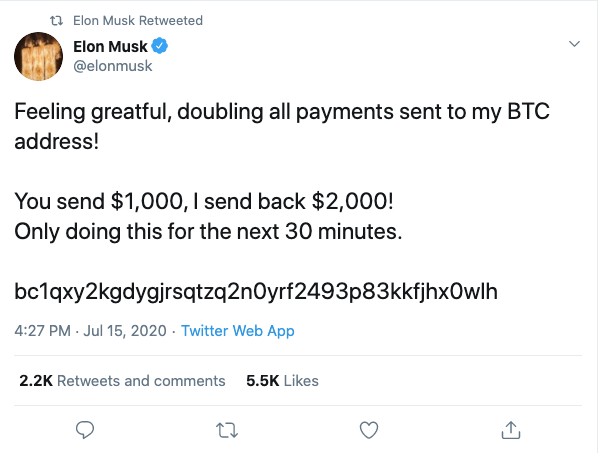New to Bitcoin? Staying Safe and Avoiding Scams
You are your own best defence against scammers and fraudsters in the world of bitcoin.
By Brandon - Lightning Pay Team
Updated October 29, 2024

If you're new, and looking to purchase your first bitcoin, here are a few things you should know about the most common ways fraudsters may target those that are new to bitcoin.
Learn more about Bitcoin
As we mention in our "Getting Started with Bitcoin" article, educating yourself is an important step that comes before your first purchase. Learn about how wallets work, and choose one you're comfortable with. When making your first purchase, choose an exchange or broker that is trusted by people you know.
Then, don't stop learning. The world of bitcoin is different to the traditional financial world. But important to this article, that is because bitcoin isn't controlled by anyone, bitcoin transactions are not reversible, and there is often nothing you can do in case of a loss.
Protect your Keys
When you receive your first bitcoin, it is protected from theft by a secret called a private key. Usually, this is presented to the user as a list of 12 or 24 words, called a "Seed Phrase."
This is YOUR SECRET, and belongs to nobody else. If anyone has access to this secret, they have access to everything they need to steal your bitcoin.
One of the most common scams in the industry is to talk a user in to share their Seed Phrase or private key with a scammer, whether by email, chat app, or telephone. People who are new to bitcoin may not understand the implications or importance of this piece of information, but now you do. This seed phrase and/or private key is the very thing that allows you and nobody else to move your bitcoin. Thus, it is critical you treat it with the utmost respect. NEVER:
- Share your Private Key or Seed Phrase with anyone. No matter who they tell you they are. Nobody who cares about you and your funds will ever ask for this information. Often, scammers will contact new users claiming to be their exchange provider, wallet software developer, bank, email provider, etc. and talk a user into providing them this information.
- Store your private key or seed phase in an insecure location. Mistakes here include taking a photo or screenshot, leaving the seed phrase in plain text on an internet connected device. You should securely backup your seed phrase by writing it down, or pressing it into a metal backup, then store it away somewhere securely.
Bitcoin Giveaway Fraud
This one is all too common, but can be easy to fall for if you're not familiar with Bitcoin and Cryptocurrencies.
Just understand, nobody is giving away free bitcoin.
Very commonplace on social media sites like Facebook or X, this scam involves an advertisement or social media post, promising an "exclusive giveaway offer." In short, the scammer typically asks you to send them bitcoin or another crypto currency, and in return, they'll send you back twice as much.
So successful is this type of scam, that in July 2020, someone with unprecedented access to Twitter/X used their compromise of this platform to conduct this scam. Celebrity accounts from former presidents, and many others, promised the same giveaway "Send me $1,000 in bitcoin to this address, and I'll send you back $2,000."

Scams like this can even come from the accounts of people you know if their account has been compromised. Nobody is giving away free bitcoin.
If you ever see someone promising to give you free bitcoin, they're lying to you.
Fake Bitcoin Investment Scams
Another very common scam is often presented to users of social media sites. You may come across this in a community forum, or as an advertisement promising a "guaranteed returns" for an investment program. These will often be complete with a polished looking website, and user testimonials praising the creators for giving them the best investment opportunity of their lives.
Don't believe the hype.
These fraudulent investment schemes are counting on the fact that bitcoin transactions are irreversible. Once you part hands with bitcoin, there's no getting it back. Be certain you know who you are dealing with.
These fake investment schemes may even send you some fake "profits" back, hoping to lure you to invest even more into the scam after a trial period.
In short, promise of outsized investment returns if you just send some bitcoin, is bogus.

If someone is sending you to a website offering returns that are too good to be true, they are just that.
Here are some clues that might tell you an investment site might be fake:
- You can't find a registration of the website in your country or any other as a financial service provider
- The company doesn't provide a physical address
- The website does not have a customer service phone line
- The design of the site looks or sounds similar to a well-known brand
- The website claims to have millions of customers or conduct billions of dollars in trades, but it is only weeks or months old
- There might be broken links, bad grammar, and poor spelling
- The website claims to have won many awards that you have never heard of
- The website has raving testimonials
Recognising Scams - Key Reminders
It might be easy to read the above descriptions of common scams and think "that will never happen to me." The problem is that it is easy to lose your wits when faced with a persistent and persuasive scam artist. These people are practiced at putting you into a position where you're feeling pressure to act, and people do act, far too often. There are many people in bitcoin with a lot of experience with these issues, hence the fact that some of our most common phrases or sayings address these issues directly.
Stay humble, stack sats - Don't get caught up by the hype
Stay humble, stack sats is a phrase that is common in the bitcoin community, coined by Matt Odell. Stacking sats is slang for buying or earning bitcoin. The stay humble part, in part, is a reminder to not chase outsized gains through leverage or bad decisions.
Anyone promising you to make you rich, and praising an opportunity that's "cracked the code," isn't looking out for your best interest. These should always be treated as a scam. Many people lose money from taking these risks, and that's why these scammers do it. It works.
Not your keys, not your coins
Your keys (or seed phrase) are quite literally your only defence against the theft or loss of your bitcoin. Protect them seriously, and never give them away, even to someone you think is trying to help.
Do your own research
This one is really about learning. Try to use bitcoin before you invest a lot of money into it. Try the tools, and understand how they work. By gaining a healthy respect for the self-control and personal responsibility that is required with bitcoin, you're experience will be far better in the long run.
Reach out if you have questions
If you believe you may be a target of a scam, or if you even have some reservations about a situation like this, please reach out to us at support@lightningpay.nz. Unfortunately, we've all seen it before, and we'd be more than happy to coach you through a situation and help you avoid losing your money to scammers and fraudsters.